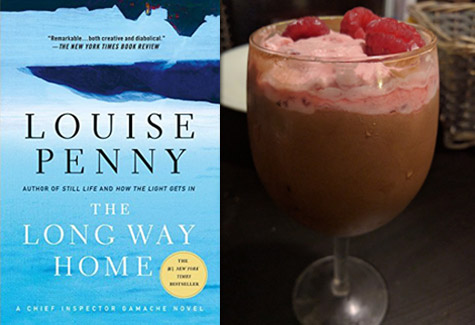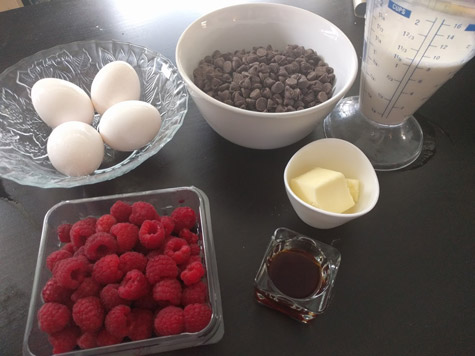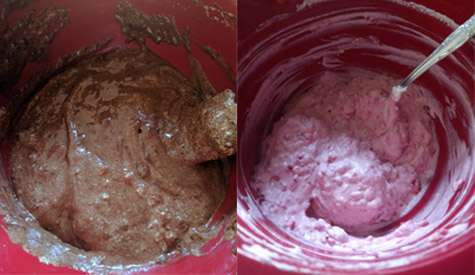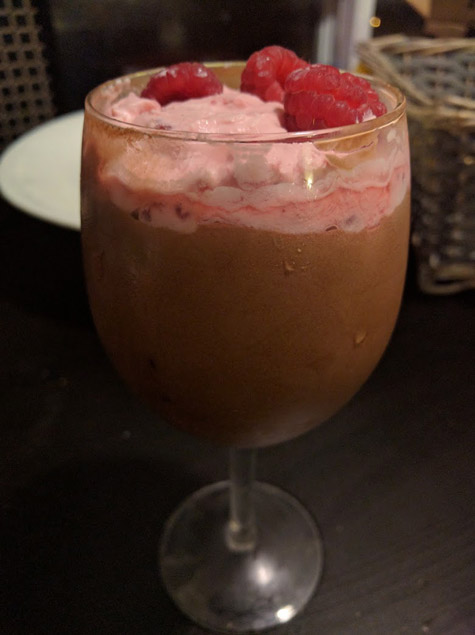
I think this is the first time that I have vehemently disagreed with the direction an Inspector Gamache novel took. I mean, even in my disbelief at the ending of The Brutal Telling, I felt confident in Louise Penny’s storytelling skills that it would all eventually make sense (and it did in the novel that followed). But I felt oddly shortchanged by the ending of The Long Way Home, and I know there’s no coming back from this one.
Which isn’t to say that this is a bad book at all! On the contrary, I spent the first parts in a happy literary haze at the outright confirmation that Ms. Penny admires Marilynne Robinson, one of my all-time favorite authors, with whom she shares a similar outlook regarding humanity and empathy.
The story itself begins as Armand Gamache, now retired from the Surêté du Québec, is living a quiet, happy life in Three Pines with his beloved Reine-Marie. But his special skills are called back into service by his neighbor, Clara Morrow, who has grown increasingly concerned at the continuing absence of her beloved but estranged husband, Peter. They’d separated with the promise to meet back at their Three Pines home in a year, and when that anniversary comes and goes with no sign of Peter, Clara begins to worry that his absence is involuntary. This sets Gamache—along with Clara, Reine-Marie, and other series stalwarts—on an odyssey to find the man who has not come home.
I really enjoyed how Reine-Marie especially stepped forward to play a more integral part in this book’s investigations than she had previously. And even though I disagreed with how the book ended, I greatly admired the unravelling of the mystery that led up to it, with all of Ms. Penny’s customary red herrings strewn along the narrative pathway. Also, any bitterness I might have felt at the denouement was quickly smothered in great big helpings of this sweet dish that The Nature of the Feast chose as accompaniment:
Chocolate and Raspberry Mousse
*Makes 6 servings
Ingredients

10 ounces (280 g) good-quality semisweet or extra bittersweet (about 70%) chocolate
2 tablespoons unsalted butter
4 large eggs, separated (see Note)
1 cup (250 ml) heavy cream, very cold
1 tablespoon raspberry liqueur, such as Chambord, or 1 teaspoon pure vanilla extract
Additional whipped cream (optional)
One ½-pint basket fresh raspberries
Instructions
1. Break up or chop the chocolate into small chunks. Melt the chocolate and butter in the top of a regular or improvised double boiler (set a heatproof bowl into a saucepan with simmering water; the size of the bowl should be large enough to easily hold the chocolate, fit the top of the saucepan with simmering water, and keep the bottom of the bowl at least 2 to 3 inches above the water). Stir occasionally until the chocolate has completely melted, about 10 minutes. Keep the water at a bare simmer.
2. Remove the chocolate mixture from the heat and beat in the egg yolks, one at a time. Beat the egg whites in a separate bowl with an electric mixer just until they hold soft peaks. Fold the egg whites into the chocolate mixture, one-half at a time, using a rubber spatula. Fold gently, making sure to scrape the bottom and sides of the bowl. Stop folding when the whites have been halfway incorporated into the chocolate. Whip the 1 cup of heavy cream with an electric mixer just until it holds soft peaks. Add the liqueur to the chocolate mixture. Fold in about three-quarters of the whipped cream just until no white streaks remain. Set 12 raspberries aside. Mash the remaining berries into the reserved whipped cream until the cream takes on a light pink color.

3. Spoon about ¹⁄ ³ cup into a champagne flute or other tall, clear glass (a white ramekin will work in a pinch). Spoon in a tablespoon or so of the raspberry cream, and then top up the glass (or ramekin) with another ¹⁄³ cup of mousse. Cover each serving with a small piece of plastic wrap and refrigerate until completely set, at least 3 hours or up to 1 day. Serve with additional whipped cream, if you like, and a couple of the reserved fresh berries.

NOTE: Eating raw eggs may lead to food-borne illness. You can reduce the risk of illness by washing the eggshells before cracking them. In any case, pregnant women and those with compromised immune systems should refrain from eating raw eggs.
First, I have to thank my lovely assistant Karin for all her help making this while my darling toddler children were doing their level best to turn the house upside down.
To the recipe itself: I’m always super lazy when it comes to double-boiling chocolate. I've found that if it’s just an issue of melting chocolate chips, microwaving works just as well. I also paid more attention to the photo in the cookbook than to the actual instructions, so I did not layer chocolate with raspberry cream as I should have, but only placed the cream on top.
It was still incredibly delicious, though! The tart freshness of the raspberry cream cut nicely through the richness of the semi-sweet chocolate that I chose, making for a very balanced and satisfying dessert.
Next week, I try two unusual but seasonally appropriate apple recipes and hope, for Ms. Penny’s and my own sensibilities, to fall back into sync with her next novel. Tell me how you’re doing as you cook along with me from The Nature of the Feast, Louise Penny’s free cookbook accompaniment to her bestselling Inspector Gamache series.
To learn more or order a copy, visit:
opens in a new window![]() opens in a new window
opens in a new window![]()
Doreen Sheridan is a freelance writer living in Washington, D.C. She
microblogs on Twitter @dvaleris.
Read all posts by Doreen Sheridan for Criminal Element.

Yours is the first comment I’ve seen about what happened toward the end of The Long Way Home that I agreed with. Honestly, I was shocked and went looking for reviews but none I read felt as I did. I also found it hard to believe the abrupt change in Beauvoir’s behavior in How the Light Gets In- regardless of the trauma that Penny put him through. Enjoyed your posts- thanks.
OMG, it’s so nice not to be alone! Did you feel like it was a moral cop-out, too? I felt like there was a lot of relationship work between Clara and Peter that Ms Penny maybe didn’t feel up for, which was why she chose to end the book the way she did. I mean, I respect her choice not to make her writing life more difficult in that regard, and I know that life actual doesn’t always give us the opportunities to work through our issues, but I expected more from Ms Penny given what she’s written so far. I still love her work, but the ending didn’t come up to her usual standard, IMO.
As to Beauvoir in How The Light Gets In, I bought it because addiction is a hell of a thing. Some people retain their positivity but a lot of people become the worst version of themselves on drugs. Also, I had the privilege of being able to read the whole series back to back, so the progression felt natural, if painful, given how he went one step forward then two steps back with the preceding books.
Thanks so much for your input! It’s lovely having this discussion!